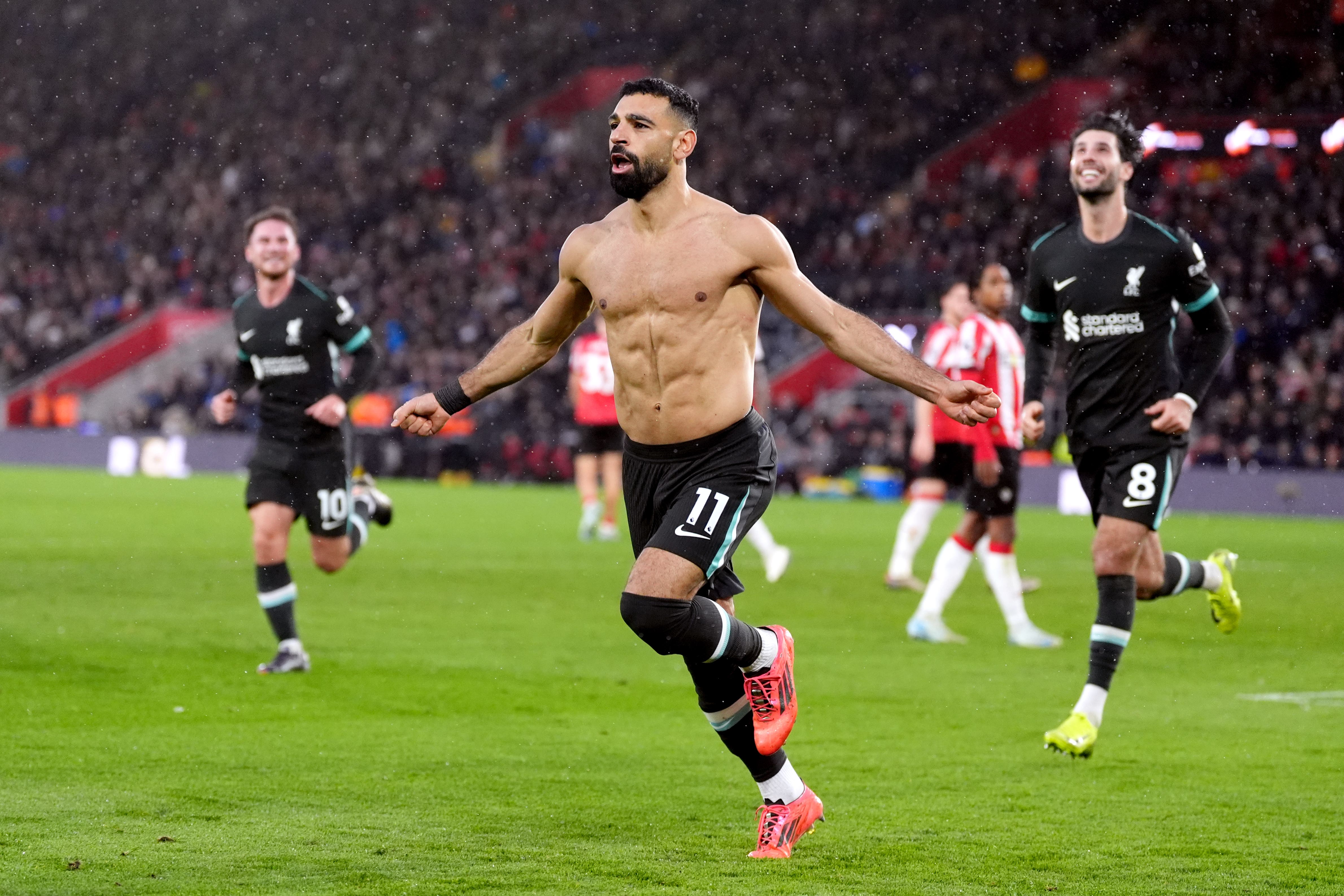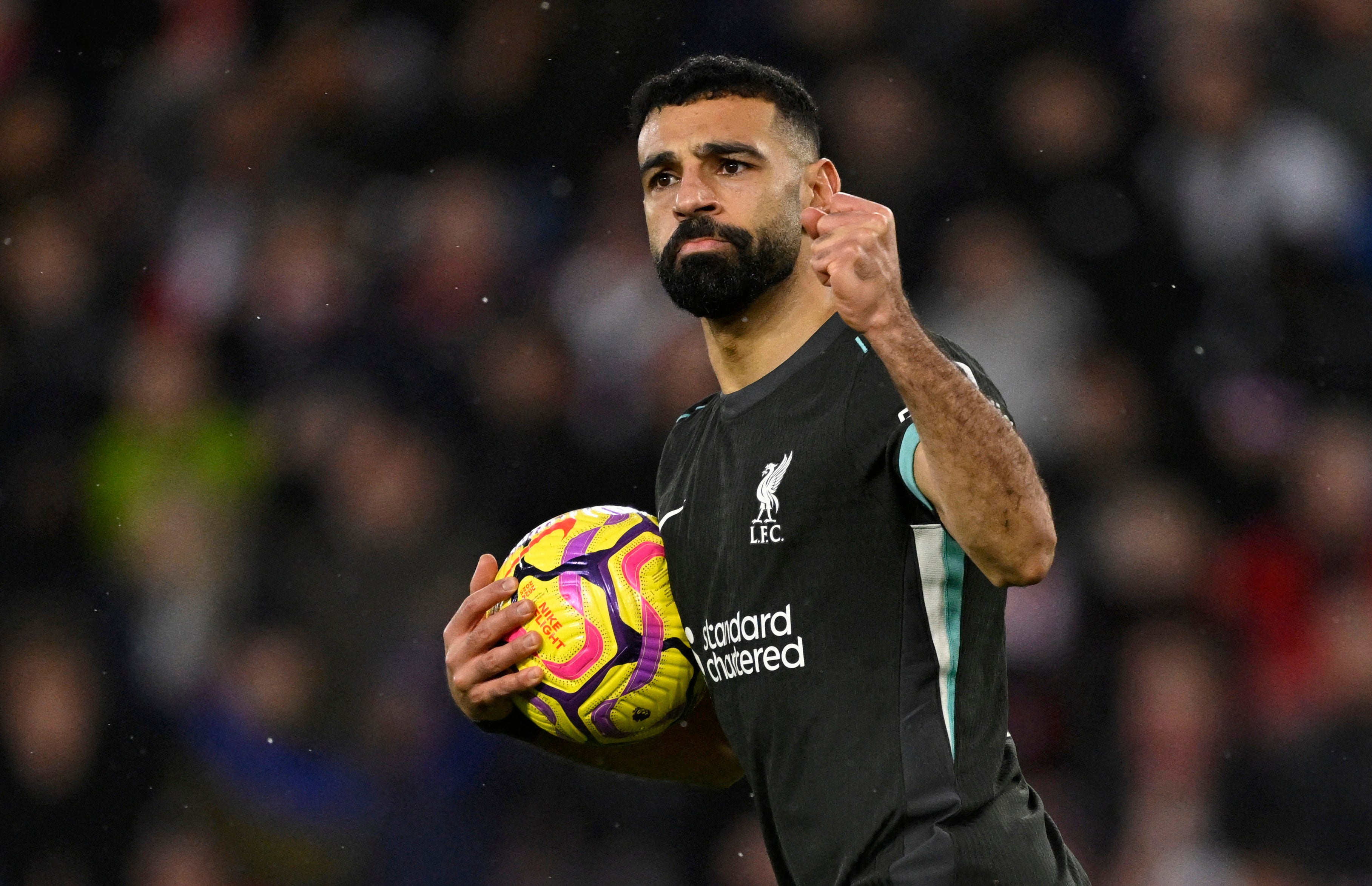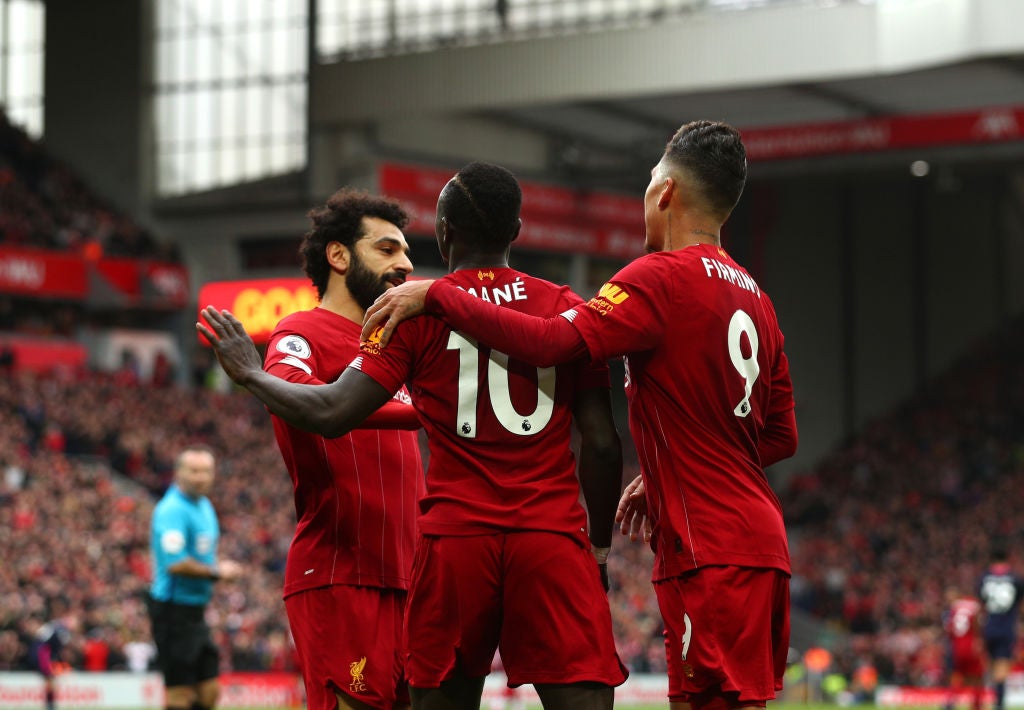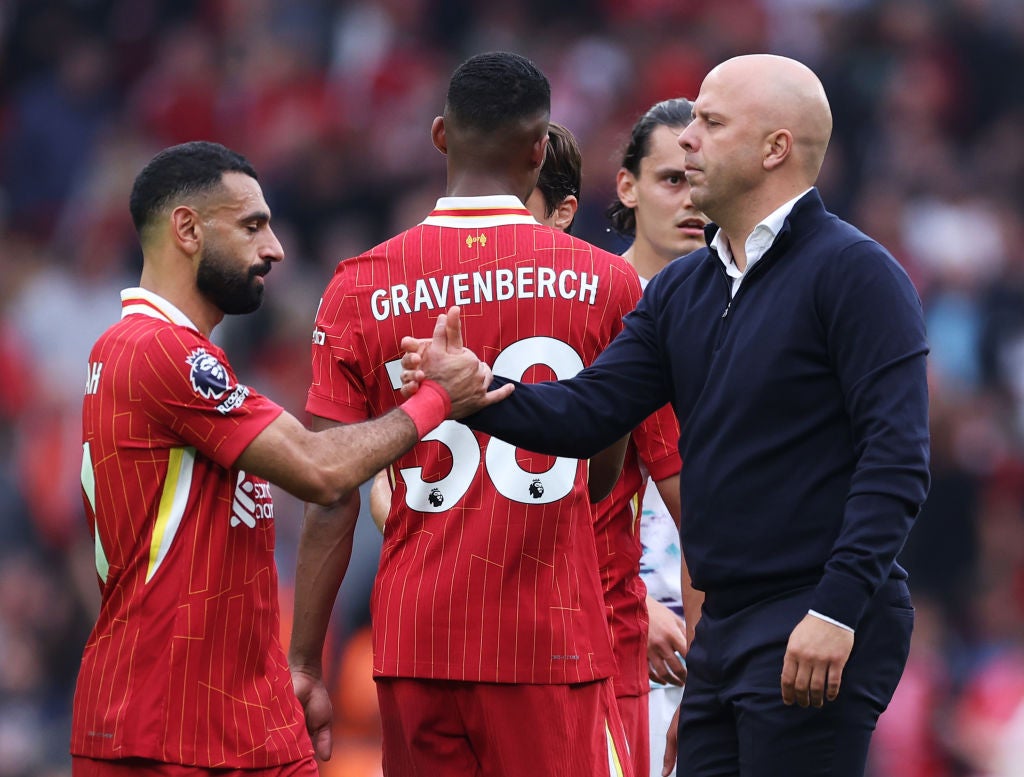
As clear and emphatic as Mohamed Salah’s words on Sunday were, something was still left unsaid. The lack of an offer doesn’t mean the lack of talks.
And that is where there is much more nuance and uncertainty than in the simple words: “I haven’t received an offer.”
Those within Liverpool insist that contact with the player’s agent is ongoing and has been positive. Some close to the situation similarly interpret Salah’s words, and the timing, as trying to force the club’s hand.
Salah does not yet want to go to a competition like the Saudi Pro League, and didn’t want to in the summer of 2023, either. It was he who turned down a move then. He wants to stay at the top level and win the biggest trophies, and feels he is still at the top of the game.
There is similarly a feeling that Salah was understandably buoyed by scoring twice in yet another match where he was the decisive player, so he was led by his emotions. If anyone is entitled to say what he thinks though, it is one who has been Liverpool’s outstanding talent for seven years.
And yet that is also where there is a genuinely difficult judgment call. The big question, that Liverpool have to figure out by obligation of due diligence, is how long this level can continue.
Salah shows no signs of slowing down. You only have to look at the muscle definition that he regularly reveals by taking his top off when celebrating wins. He is in supreme physical condition.

The suggestions have long been that this is a player who can play at an elite level until he is well past 35, maybe even close to 40.
But that isn’t guaranteed and, statistically, becomes less likely with every year into a player’s thirties.
As one figure who works with elite teams’ physical conditioning and fitness maintains: “A player in his thirties can have a sudden drop – the cliff could be big.”
You’re then abruptly left with a huge contract, potentially hampering future improvement in the team, but worth nowhere near that. Liverpool could end up with their own distinctive version of the Mesut Ozil situation, where he was on a huge wage at Arsenal but not at the level he was when he signed for them.

The argument of “give him whatever he wants” quickly sounds very different. That is something the hierarchy simply have to consider, as ludicrous as it might seem right now.
It’s why, The Independent understands, those at the club talk of how this was never going to be solved quickly and the club is increasingly conscious about the future.
It’s also worth stating that there is no real comparison between Ozil and Salah in terms of career trajectory or even physical profile.
And that’s where there are no guarantees on the other side, either. Salah may not sustain this level for three to four years, but is that less likely than a rebuilt attack with different players offering the same goals?

If you are bringing this down to probabilities, the Egyptian continuing this level of scoring seems like a prospect that is better to invest in than an entirely new attack in the hope of the same return.
Brentford’s Bryan Mbeumo? He is a fine player who may well excel at a higher level. He’s also 25 and hasn’t yet hit 10 goals in four seasons in the Premier League.
Salah has already beaten that in 12 games, with this almost certain to be the eighth successive season where his goal rate is at least one in two. Six of those campaigns have seen him go way beyond that return. That is something almost guaranteed.
Some of this thinking would appear to go against the prudent modern approach in football recruitment; that every player is replaceable; that the real magic is in finding players – like Salah – who have huge growth potential and rise to this level.

But, as good as the rest of Liverpool’s attack has been, no one has come close to the Egyptian outside of Sadio Mane or Roberto Firmino. The successors have done admirable jobs but it’s not the same.
Salah has gone beyond growth expectations. He’s become a historic player.
And one of the entire points of the modern recruitment approach is to recognise the players who do go beyond the algorithm. These are special talents. They do become irreplaceable.
Liverpool still have to prepare for every eventuality. It has been known since the summer that Arne Slot is thinking about how to reshape the forward line. That is pretty much all the club can do if Salah does go.
The thinking right now, despite his words, is that Salah and Virgil van Dijk are better bets to stay than Trent Alexander-Arnold. A theory has even been floated around the club that the ideal situation here would be to get two contracts announced so it puts pressure on the other.

If only it were that simple, though. There are so many elements at play, so much to consider.
All that those involved can do is bring it down to the available evidence and try and make the most rational decisions.
And that brings Liverpool to the rub.
Reason, caution and precedence suggest it is better to be more financially restrained with a player who will soon be in his mid-thirties. The reality of the player’s own career, however, suggests that Salah is an exception. The probabilities indicate it is better to lean towards the idea that he will play on at this level for years still.
That may require an offer that is much closer to what Salah’s camp wants – whenever it eventually arrives.







